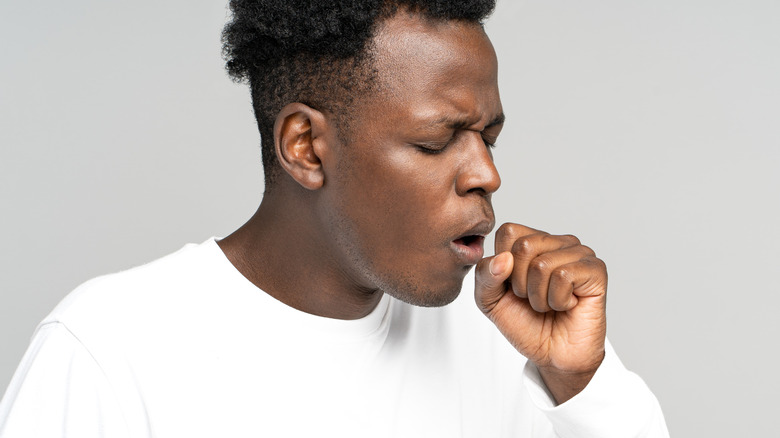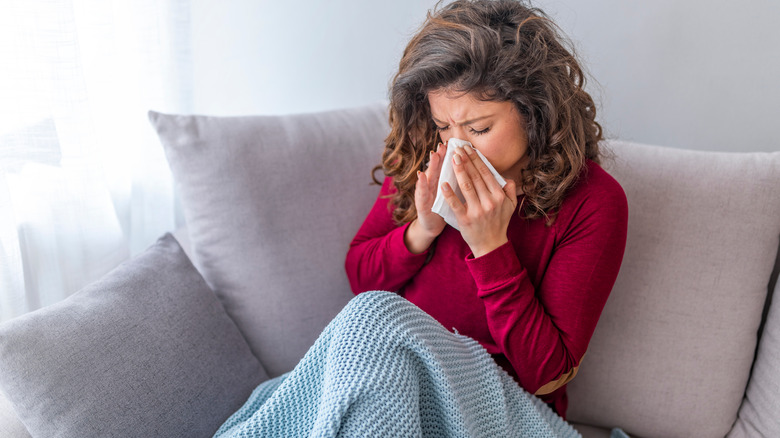How Long Does It Take To Show Symptoms With The COVID-19 Omicron Variant?
Experts are learning more about the Omicron variant of COVID-19 as it continues to spread, and early data shows how it differs from other variants. For one, it seems to spread faster, according to the Centers for Disease Control and Prevention. While vaccines protect against severe illness, hospitalizations, and death with previous variants, breakthrough infections with Omicron are likely to occur, per the organization. In addition, anyone, whether they are vaccinated or not, can spread it. Early reports suggested that symptoms of Omicron were milder than other variants, but the World Health Organization (WHO) points out that we won't know how severe symptoms are for a few more weeks.
A report published in the Annals of Internal Medicine revealed that the incubation period for earlier variants of COVID-19 range from 5.1 to 11.5 days, with 97% of people who participated in a study showing symptoms within that range. The report also indicated that the average incubation period is about 5 days.
Omicron symptoms may show up quicker than symptoms of other variants
Research published in the journal Eurosurveillance, which followed a small number of participants attending a Christmas party, suggested that symptoms can show up in as little as three days. Participants involved in the study were vaccinated, and they also tested negative for COVID-19 days prior to the party. This short incubation can make things worse as far as transmission goes because it makes the virus difficult to control, epidemiologist Jennifer Nuzzo told The Atlantic. It also means more infections in less time. In addition, a short incubation period makes it more difficult for the body to build a defense against it.
While everyone is becoming COVID-weary, it is more important than ever to take precautions to avoid getting and spreading any variants. Maintaining a safe distance from people, wearing a mask, washing your hands frequently, avoiding crowded areas, and getting vaccinated remain the best advice, according to the WHO.


